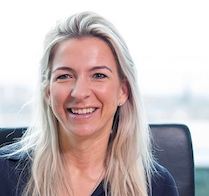Only 12% of investment trust managers are female, according to research from the Association of Investment Companies (AIC).
This figure remains unchanged since 2022 and is in line with the global average for the funds industry, the AIC said.
However, 41% of investment trust company directorships are held by women, up from 36% in March 2022.
AIC Communications Director Annabel Brodie-Smith said: “The investment trust industry has made great progress when it comes to the gender diversity of investment trust directors.
“Quotas and targets have helped at board level, with 41% of investment trust directors now female. The industry is continuing to address ethnic and other forms of diversity on boards.
“However, this highlights just how much more work needs to be done to increase the number of female fund managers.
“We need to break down the barriers that stop women progressing – whether that’s welcoming flexible working and parental career breaks for both genders, or doing more to tackle unconscious bias.
“The Diversity Project’s Future Female Fund Managers Programme, which is aiming for 20% female fund managers by 2026, is an important step in the right direction.”

Annabel Brodie-Smith
The AIC interviewed leading female investment trust managers to ask why there are not more female fund managers.
The AIC spoke to Abby Glennie, co-manager of the Abrdn UK Smaller Companies Growth Trust; Rebecca Maclean, co-manager of Abrdn’s Dunedin Income Growth Investment Trust; Kate Fox, co-manager of Baillie Gifford’s Keystone Positive Change Investment Trust; Georgina Brittain, portfolio manager of JPMorgan UK Small Cap Growth & Income; Helen Steers, co-lead manager of Pantheon International; and Jean Roche, lead fund manager of Schroder UK Mid Cap Fund.
Here are some of their answers:
Abby Glennie, co-manager of Abrdn UK Smaller Companies Growth Trust: “Change takes time to work through, but the industry’s efforts to attract more females at the graduate level appear to be improving.
“This is especially evident when you examine the composition of our current graduates at abrdn. In fact, I’ve consistently worked in teams with a robust female presence.
“For instance, our small-cap team at Abrdn consists of five females and three males, and we have just one British white male.
“Furthermore, half of our team represents either ethnic or international diversity and only one team member is over the age of 50.
“These statistics demonstrate that there are indeed pockets of diversity within the industry.”

Kate Fox
Kate Fox, co-manager of Baillie Gifford’s Keystone Positive Change Investment Trust: “I think it’s a combination of two things: when I started as a graduate in fund management 20 years ago, there was still a lack of appreciation of the benefits of diversity; and the industry is not good at articulating what the role involves.
“Therefore, amongst young people, there’s often misunderstanding about what a fund manager does.
“That’s why at Baillie Gifford, rather than describing the role as financial, we describe it as being about deep qualitative and quantitative research, with a requirement for curiosity and creativity.”

Rebecca Maclean
Rebecca Maclean, co-manager of Abrdn’s Aberdeen’s Dunedin Income Growth Investment Trust: “If you’re contemplating a career in fund management, I highly recommend connecting with industry professionals. Don’t hesitate to ask questions and actively seek out hands-on experience. By doing so, you’ll gain insights into various roles and discover what truly inspires you. Who knows – you might uncover a genuine passion for the industry.”
Helen Steers, co-lead manager of Pantheon International: “The picture is getting better, but traditionally there have not been enough women entering the fund management business, and even when they do get into the profession, the industry has not been good at retaining and promoting women.
“Speaking particularly about private equity, the pipeline of female candidates is now better than ever, but in the past recruitment has focused too much on people coming from investment banking or accountancy, and the wider talent pool of capable women has not been sufficiently tapped. That is changing, and at the more junior levels, many private equity firms now have almost equal intakes of men and women.
“However, at the mid-level there are far fewer women (less than a quarter of investment roles), and the percentage of senior investment roles held by women is still only around 12% in the UK. This is an improvement from five years ago, when only 6% of senior investment roles were held by women.
“Pantheon is in a much better position than the industry average, with 42% of our international investment committee being female.
“The industry is more aware than ever of the issue, and there are initiatives which are aimed at increasing the pipeline of female private equity managers, helping them progress and become more senior. Level 20 is the non-profit organisation which I helped to co-found in 2015, and which aims to improve gender diversity in the private equity and venture capital industry.”
